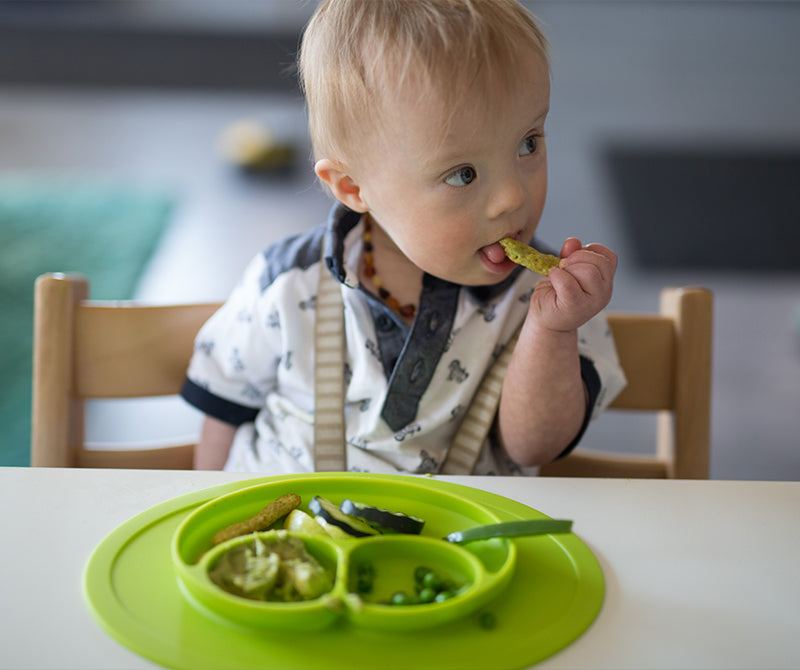Babies, toddlers, school-age children, teens and adults can have epilepsy, which is a neurological disorder that causes seizures. It is estimated that 460,000 children aged 0 to 17 years are affected by epilepsy. But seizures occur most often in infants (before their first birthday) due to the rapid growth and increased activity of the brain. Thankfully, more than half of the children diagnosed with epilepsy grow out of their seizure disorder by the time they are teenagers. Here are some tips for feeding babies, toddlers and school-aged children with epilepsy.
Feeding Babies: The important thing to know about feeding babies with epilepsy is that you want the baby to be alert and positioned correctly. However, this can be tricky, especially if the baby recently had a seizure and is fatigued, irritable or disinterested in feeding. When I see a baby that is fatigued by seizures and is consistently ‘dream fed’ (baby sleeps through feedings) I worry that baby is missing out on important oral motor, swallowing and feeding milestones. That said; because of fatigue during feedings, these babies can struggle with weight and nutrition. I recommend balancing dream feedings and alert feeding as much as possible so that baby can engage in proper oral feeding development.
Positioning baby during feedings is important, particularly if baby has a seizure while breast or bottle feeding. To ensure safety, hold baby securely at a minimum of a 45-degree angle, which will decrease the chance of milk going into the estuation tubes (causing ear infections, hearing loss and speech delays) and milk going into the lungs (causing aspiration pneumonia, respiratory issues and it can be fatal).
Feeding Toddlers: The key to feeding toddlers with seizures is to ensure they have the proper positioning during mealtime. To avoid falls, the toddler needs to be strapped correctly into a highchair and have proper foot support to improve their stability. In order for parents to feel more comfortable if a seizure occurs during mealtime, I recommend that parents: 1) cut finger foods into thick strips so they can pull the food out quickly if needed 2) be present during all meals to look for signs of choking 3) take a CPR course 4) monitor their anti-seizure medications for side effects at mealtime, like drowsiness, reflux, inattention, or mealtime behaviors and 5) if the child is drug resistant (30% of these children are) monitor any changes during mealtime after their brain surgery (e.g., fatigue, picky eating, coughing, choking or food refusal).
Feeding School-Age Children: To make mealtime easier for school-age children with epilepsy, I recommend that parents utilize some or all of the following strategies.
- Talk with cafeteria personnel about giving your child accommodations during lunchtime, such as sitting close to an adult when possible.
- Have a discussion with your child’s teacher. For example, does your child need extra time to consume snacks?
- Use organizational strategies, e.g., a lunchbox that your child can open independently. I also recommend cutting up foods (so they are easy to chew) and providing condiments, napkins, etc. to make lunchtime less stressful.
- Have a speech language pathologist and/or a nurse monitor your child at lunchtime.
- Have your child complete a daily journal of their successful mealtime and/or any complications they have with their medications, stress or seizures during lunch.
Do you have a child with seizures or know a child that has epilepsy? Want to learn more about epilepsy and how to help? Connect with other parents at the Epilepsy Foundation or the Brain Recovery Project and share this blog with other families using the hashtags #ezpzfun #epilepsy.



